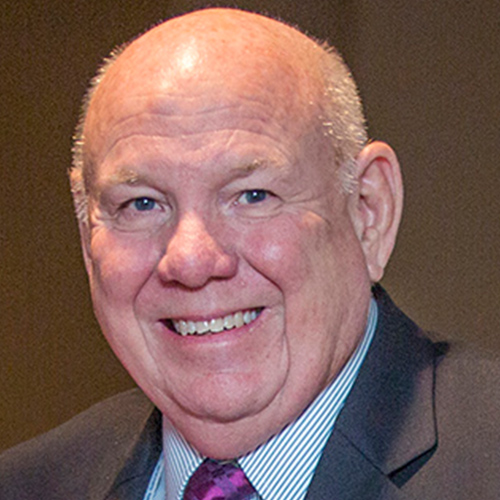
Charlie Divine, CPP APMP Fellow (Class of 2003)
Retired
Bio
APMP Director of Certification (retired) - helped APMP members achieve APMP Certification. Championed business development benchmarking research and development of the APMP Body of Knowledge.
What does being an APMP Fellow mean to you?
Our lineage of Fellows chronicles both the history and future of APMP. When I look back, I see a community that had a simple vision of learning from each other. AS additional leaders stepped forward, we developed a wider commercial business focus, expanded to a worldwide stage, and embraced professional standards that gave us certification and firmly established our profession. Looking forward to the future community of Fellows, I am confident new leaders will step forward to embrace our diversity, expand our role in winning business, develop innovative AI strategies, and chart a bright future for us.
What's your best memory from attending an APMP event?
My first APMP Conference was in Dallas, Texas. I had heard from coworkers about a proposal writing conference coming up. That was something we were trying to get started at SBC. I signed up to attend and remember walking in the first afternoon and discovering a “proposal treasure chest.” That moment started my long and successful career based on the learnings, networking, and most importantly friendships that APMP afforded me.
What advice do you have for a proposal professional entering our field?
Focus on these imperatives as you grow in the profession … Create value for customers in your sales communications. The key imperative of all sales communications, be they proactive or reactive, is the customer is central. The dialog is not about you or your organization – it’s about building value for your customer. Commit to a saleable repeatable process.
Winning business through proposals takes a plan - a repeatable, flexible process that you can implement whether the window of opportunity is short or long. A repeatable proposal process provides a roadmap. Proposal teams know where they are, where they are going, and the path to reach their goal. Identify and qualify your opportunities.
In the effective pursuit of new and repeat business, bid decisions made by you and sales leadership are critical. Sales decisions are aimed at eliminating opportunities or sales leads with a low win probability, thus permitting a stronger focus on opportunities with a higher win probability. Given finite resources and the cost of booking business, only pursue opportunities with a reasonable probability of winning.
Sales Communications are a written argument—an appeal to gain a reader’s agreement. When you write a proposal, you are telling a story, and you are trying to convince your Customer that you understand his/her problem and you have the best solution. To be successful, you must know your audience so you can use the right techniques to match their perspectives. And you must plan that approach before you start writing. Review to perfect your communication style and the processes you use.
You must inspect your work products if you expect to improve. This concept applies to not only what you produce but also the process you produce it. To be a true sales professional, you need a mindset for continual improvement. The sales process is too complex, customers too demanding, and competitors too crafty for the status quo. Retain your knowledge
When you’ve been developing sales communications for a while, you find that you do a lot of reworks. From deal to deal — small or large, simple or complex — you find yourself saying, “I’ve been here before.” Knowledge retention may be as fundamental as a set of homegrown templates that streamline your page layout, or it may be as sophisticated as knowledge management that serves hundreds of users.
Anything else you would like to share?
Proposal management is now a well-defined profession with a set of key practices that define a path to success. Improve yourself and continue to support your chosen profession – become APMP Certified.









